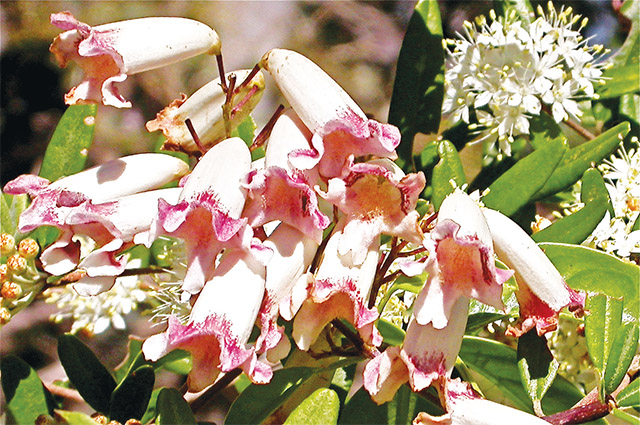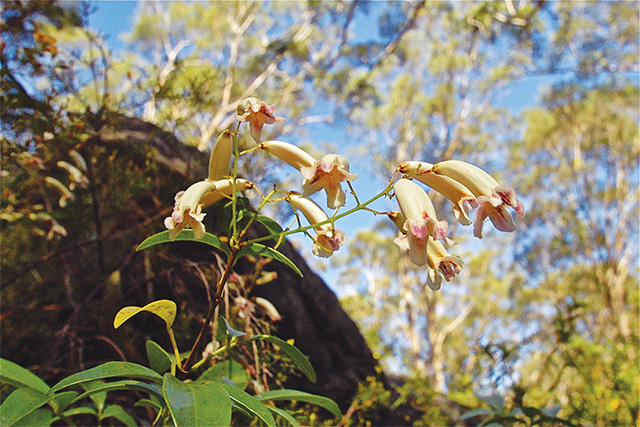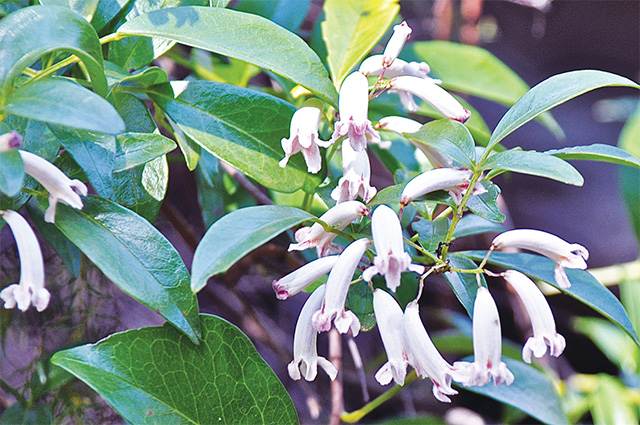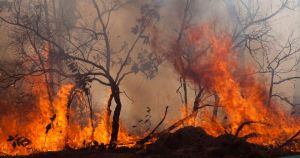Throughout bushland and forest areas there are numerous plants that rely on a host shrub or small tree for support. These vine type plants are generally referred to as scramblers or climbers due to their growth habit.
One such plant is the Wonga Wonga Vine (Pandorea pandorana). Whilst it is more prominent in tropical regions it is also common in more temperate regions, particularly within a not too moisture laden environment.
The colours of the pendulous bell shaped flowers vary depending on the habitat in which it is growing. Soil types, moisture and exposure to sunlight can influence the overall growth of the plant which is often reflected in the leaves as well as in flower colours.
It is possible to propagate this plant successfully, making it a feature in the home garden, provided it has adequate support for it to thrive. This plant has been recorded up to 20m in height and spreading up to 9m in its natural environment. Given some attention and thoughtful pruning, there is the opportunity for a mass display of flowers extending from early May to late August.
Because the flowering period is mainly during winter there is the risk of it being affected by frost when growing in an open position. The flowers attract butterflies and other insects which could indicate that the flowers may emit a subtle fragrance, which may be more noticeable when there are many blooms clustered together.
The scientific name is derived from the legend of the Greek Godess Pandora. However, the origin of the word “Wonga” is unclear. It is thought to have been an aboriginal word. The Wonga Pigeon (a ground frequenting bird), appears to not be directly associated with this plant.
– Lachlan Turner







